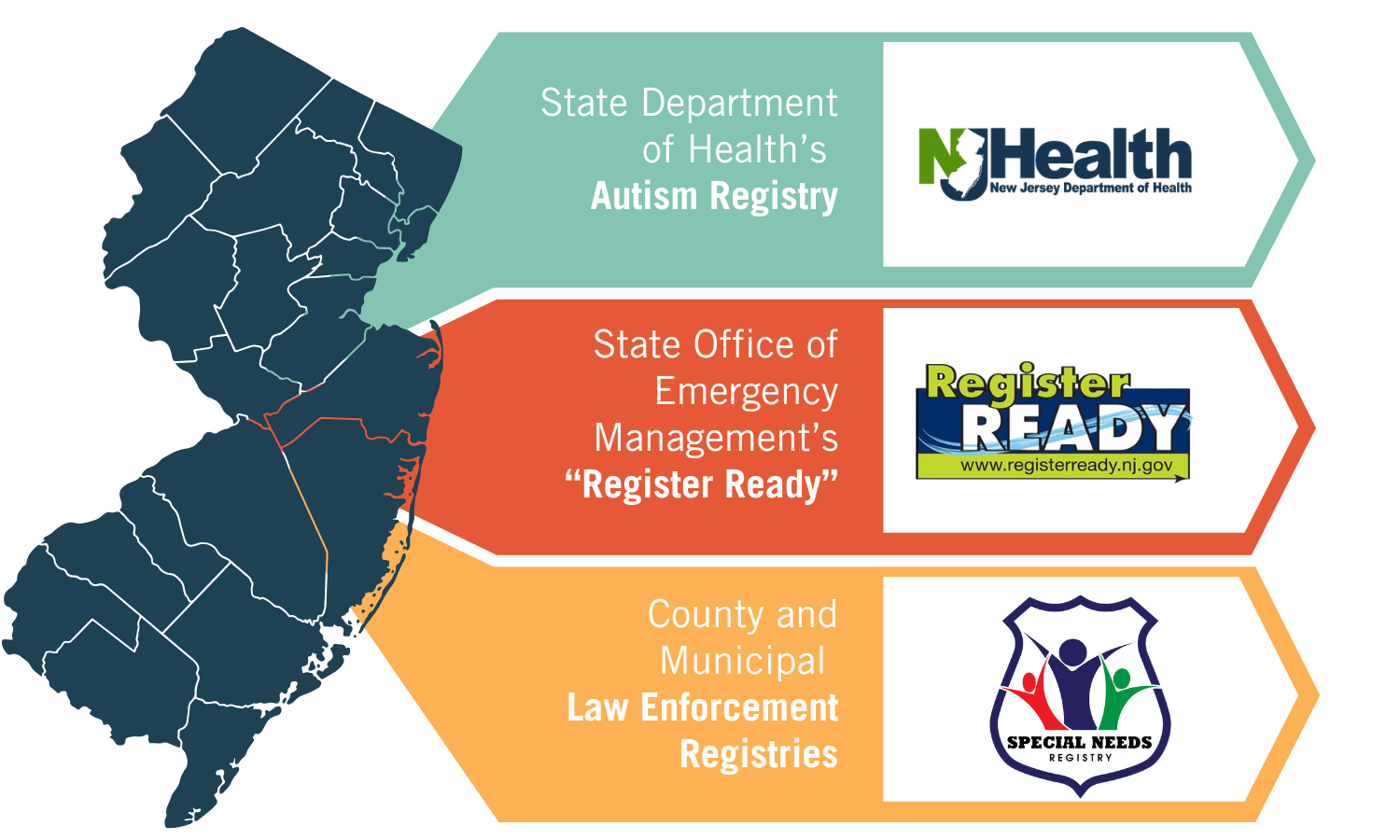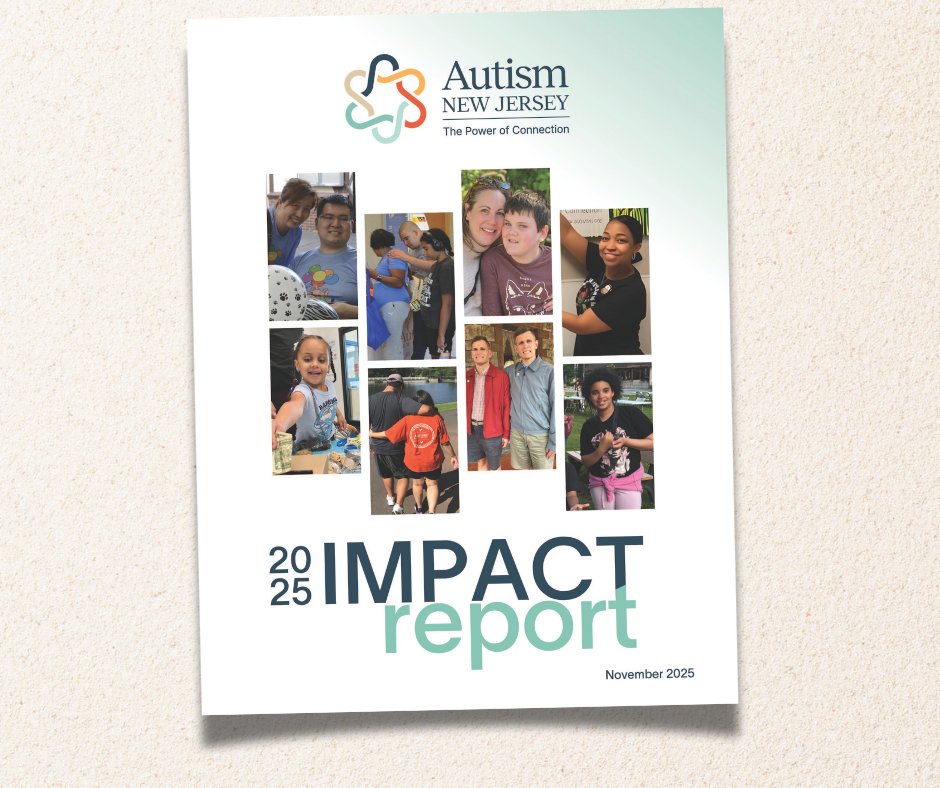
Parents of children with autism may be confused by the many autism and special needs registries they learn about. If you have questions, you’re not alone. Some families wonder who keeps their child’s information and who can access it. Others want to know what happens once they’re registered. Many have difficulty telling the different registries apart from one another.
Here are three registries, each with a different purpose and run by different state, county, or municipal agencies:
- State Department of Health’s Autism Registry
- State Office of Emergency Management’s “Register Ready”
- County and municipal law enforcement registries
All of them are crucial tools that help autistic individuals, offer them support, or keep them safe.
State Department of Health’s Autism Registry

Under New Jersey law, whenever a healthcare provider makes an autism diagnosis of anyone under the age of 22, they must report it to the State Department of Health’s Autism Registry. The registry then sends the family a letter and pamphlets with helpful information. The registry also sends the family’s information to their county’s Special Child Health Services Case Management Unit. Those case managers can then provide coordinated, family-centered resources free of charge to families of children with autism.
At the request of the family, the provider can also make the report anonymously. It will not carry any information that identifies the autistic individual or their family members. However, if families ask their provider not to share their information, they will not be connected to a Case Manager.
For more information, read Autism Registry: Facts and Myths.
State Office of Emergency Management’s “Register Ready”

“We strongly encourage individuals who have autism (or caregivers) to sign up with Register Ready since they often require additional assistance and resources during emergency situations. This database is a vital tool to help emergency managers across the State with planning for and responding to emergencies,” said Kelly Boyd, who serves as the Access & Functional Needs Planner at the New Jersey Office of Emergency Management.
Communities use Register Ready in a variety of ways. Emergency managers and trusted personnel may use the information to plan, send public messaging, assist with evacuation, and support sheltering and post-disaster recovery. Sign up for the Register Ready registry here. After registering, contact your local Office of Emergency Management to learn how staff use Register Ready and what you can do to enhance your own preparedness.
County and Municipal Law Enforcement Registries

A law enforcement special needs registry may contain information that helps officers deescalate crises. It can contain instructions for responding officers to avoid using lights and sirens when possible or to try to respond in plainclothes rather than in uniform, if those things would trigger the autistic person. Some registries can also help a police department respond more quickly if someone with autism elopes, runs away, or wanders.
Doreen Yanik, Esq., the head of Autism New Jersey’s Law Enforcement Initiative, emphasizes the value that these registries offer.
“By voluntarily sharing information related to diagnoses, stressers, and de-stressers, families can give law enforcement advance notice that their response may require a different approach. Having this information in advance of a response can de-escalate a potentially volatile situation and ensure a safe and positive interaction between law enforcement and the autistic individual. Use of these voluntary registries can also foster a meaningful relationship between local law enforcement and the autism community.”
A special needs registry is just one type of autism-friendly law enforcement practice. When used effectively, they can enhance the well-being, safety, and support of those on the autism spectrum.
To check if your county’s law enforcement agencies have a special needs registry use the interactive map on our Autism-Friendly Practices for Law Enforcement page.
CSOC and DDD Are Not Registries
Families can get confused when prompted to sign up for a law enforcement registry or Register Ready, thinking they’ve already registered through:
- The Children’s System of Care (under the age of 21)
- The Division of Developmental Disabilities (over the age of 21)
If you want services from either the Children’s System of Care or the Division of Developmental Disabilities, you must fill out an application. Doing so can feel a bit like signing up for a registry.
These are not registries. Instead, these are the governmental divisions that are responsible for delivering publicly funded services to individuals with intellectual and developmental disabilities.
For help understanding the differences between these registries, or if you need help understanding the children’s or adult services landscape, call our 800.4.AUTISM Helpline or email us at: information@wordpress-1280326-5274477.cloudwaysapps.com.









